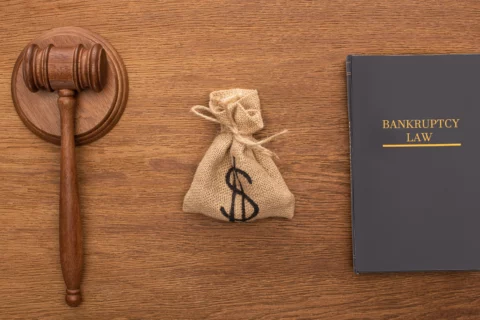Things You Need To Know About Illinois Homestead Exemption
A homestead exemption is a property tax reduction often given to someone who owns a property and who lives in it as their primary residence. In bankruptcy, a homestead exemption protects equity in your home. In Illinois, you must be a legal owner of record (your name must be listed on the deed ) to claim the exemption.
This article describes what’s covered under the exemption, how much gets reduced from your taxes, and how the exemption helps you during bankruptcy.
What’s Covered under Homestead Exemption?
The Illinois homestead exemption applies to real and personal property used as a residence, be it a co-op, mobile home, condominium.
It also applies to sale proceeds from the sale of any personal or real property for up to one year from the date you sell the property.
How Does it Help With Property Taxes?
The property tax exemption allows a homeowner to reduce the taxes they have to pay. Say the value of a property is $50,000 but it’s exempted for $10,000. Only $40,000 of the property assessment gets taxed.
How Much Gets Reduced?
Basic
 The General Homestead Exemption is based on the EAV, which stands for the Equalized Assessed Value. It’s the product of the assessed value of your property and the State Equalization Factor set by the Illinois Department of Revenue. A homeowner can exempt up to $6,000 of equity in a home or other property covered by the homestead exemption.
The General Homestead Exemption is based on the EAV, which stands for the Equalized Assessed Value. It’s the product of the assessed value of your property and the State Equalization Factor set by the Illinois Department of Revenue. A homeowner can exempt up to $6,000 of equity in a home or other property covered by the homestead exemption.
Homestead Improvement Exemption covers home improvements that add value to homestead property. A homeowner can qualify for four years after the work is done. A qualifying homeowner’s exemption cannot exceed $25,000 of the property’s assessed value of $75,000 annually.
Disabilities and disasters
Homestead property owners with disabilities may qualify for an exemption of up to $2,000 yearly in their home’s EAV. The disabled person must be responsible for the payment of property taxes to be eligible for the exemption. The exemption application must be filed yearly.
Homeowners affected by natural disasters can rebuild their homes and qualify for an exemption. The amount is computed from the home’s EAV in the tax year preceding the disaster, and the home’s EAV in the first tax year of the application for exemption.
Veterans
Veterans who are confirmed disabled by the U.S Department of Veterans Affairs have the Standard Homestead Exemption for Veterans with Disabilities. Disabled veterans can get anywhere from a $5,000 EAV deduction to a full exemption.
Veterans returning from active duty in an armed conflict can receive an exemption of $5,000 per year for two consecutive tax years.
If a disabled veteran uses federal funds for a specially manufactured home, he/she qualifies for up to a $100,000 reduction in their EAV under the Veterans with Disabilities Exemption for Specially Adapted Housing. The exemption still applies if a charitable organization gives the adaptations or the home itself to the veteran.
Seniors
The Senior Citizen Homestead Exemption is available to residential property owners over age 65 for the applicable tax year and with a total household income of less than $65,000. Property taxes are paid one year after they are assessed. So that means for the bills which are payable in 2021, the homeowner would have had to reach age 65 by December 31st, 2020 or before to qualify for an exemption.
The exemption amount is a $5,000 reduction on the home’s property value.
How Homestead Exemption helps in Bankruptcy
If you reside in Illinois, you must use the state exemptions when filing for bankruptcy.
If you file for bankruptcy in Illinois, the homestead exemption allows a property owner to protect up to $15,000 of home equity. Married couples filing a joint bankruptcy where both have an ownership interest of the property can double the amount to protect up to $30,000 of home equity.
The homestead exemption is automatic. You don’t have to file a homestead declaration to claim the homestead exemption in bankruptcy.
Surviving spouses and children
If the owner dies, the Illinois statutes allow a surviving spouse to protect the equity in a homestead as long as the widow or widower continues to occupy it. The deceased homeowner’s children can also protect equity until they reach 18 years of age.
If a residency is left to a surviving spouse but they desert the place of residence permanently, another resident dwelling in the home can still protect the equity provided this person continues to live in the property. In other words, the other resident must make sure that the homestead is not vacant.
If you need help saving your home in bankruptcy, a bankruptcy lawyer is your best bet. Contact Cutler & Associates, LTD for a free evaluation.


